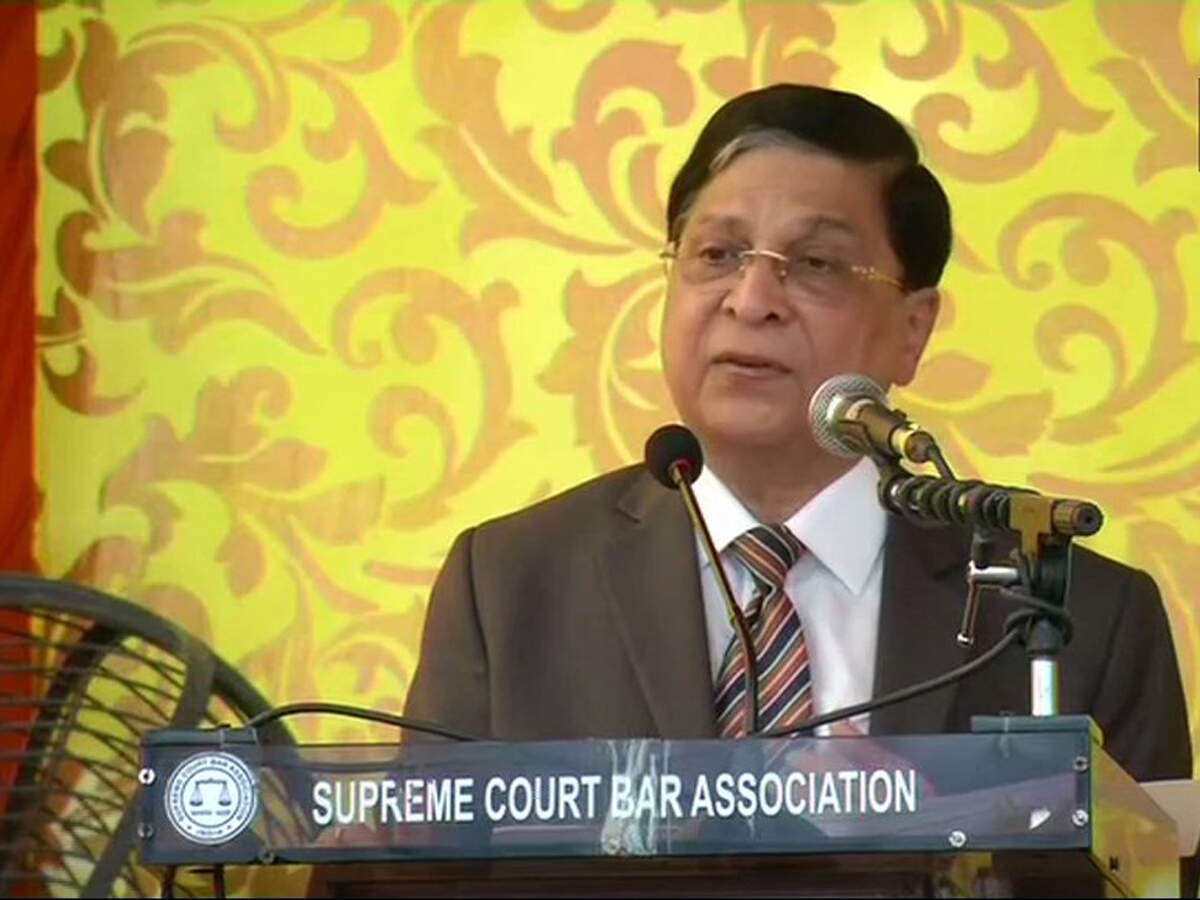NEW DELHI: Chief Justice of India
Dipak Misra held court on Monday for the last time as he retires on October 2. CJI Misra became the Chief Justice on August 28, 2017. He headed various benches of different combinations, and delivered several verdicts in the recent past. As he retires, we take a look at the landmark judgements delivered during his tenure:
*
Decriminalising homosexuality: The CJI-led five-judge constitution bench delivered a historic judgement on September 6 and legalised gay sex in the country. The SC ruled that consensual adult gay sex is not a crime, adding that sexual orientation is natural and people have no control on it. SC read down 158-years old colonial law and allowed gay sex among consenting adults in private.

Indian judiciary strongest, most robust in the world: CJI Dipak Misra
Outgoing Chief Justice of India Dipak Misra, in his farewell speech, said that Indian judiciary has been strongest judiciary in the world. Mishra observed, "We live in times when what we should eat, wear has stopped being little things of our personal lives." He added that Justice must have human face.
*
Validity of Aadhaar: In another landmark judgement on September 27, CJI Misra-led bench upheld the constitutional validity of Aadhaar with certain riders. While the SC made it mandatory for availing few services, including linking of PAN card with Aadhaar, filing Income Tax returns, it is not necessary to link your bank account with Aadhaar, or for buying a SIM card.
* Ayodhya case: On a crucial case like Ayodhya, the SC bench led by CJI Misra last week declined to refer to a larger bench the "questionable observation" in its 1994 verdict that "
mosque is not an essential part of the practice of Islam", paving the way for the apex court to hear the politically sensitive main Ayodhya title suit from October 29.
* Entry of women in Sabarimala temple: CJI-led SC bench also delivered a major judgement on the contentious issue about the entry of women in Sabarimala temple that gave a boost to gender equality. The
Supreme Court on September 28 threw open the doors of Sabarimala temple in Kerala to girls and women of all age groups by lifting the ban on the entry of those between the age of 10 and 50, holding this centuries-old Hindu religious practice as illegal and unconstitutional.
*
Decriminalised adultery: The SC on September 27 also struck down the 158-year-old Section 497 of the IPC. CJI Misra while reading out the judgement said Section 497 violated right to equality as it punished only the married man while exonerating the ‘partner in crime', the married woman, who could not even be punished for being the abettor.
* Live streaming of court proceedings: In a bid to bring in transparency in judiciary, the Supreme Court also took a major leap in imparting transparency in the functioning of the judiciary by allowing live-streaming of court proceedings of cases of constitutional and national importance, saying this openness was like "sunlight" which is the "best disinfectant". It said as a pilot project, only a specified category of cases which are of constitutional or national importance and are being argued before a constitution bench, should be live streamed.
* Euthanasia: In March, Justice Mishra-headed five-judge bench made passive euthanasia a reality by allowing individuals to draft a ‘living will’, declining to prolong her/his life at the mercy of artificial life support system when s/he slips into an incurable coma in future.
* Women's freedom of choice: An SC bench led by CJI Misra also passed a series of judgements striving to protect women’s dignity, their right to equality and freedom of choice - be it in any profession (dance bars) or termination of unwanted pregnancies, even if it had crossed the 20-week deadline under the Medical Termination of Pregnancy law.

